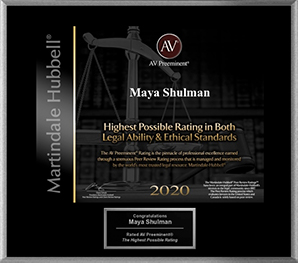Are you a grandparent living in California? Are you struggling to meet your grandchildren after the parents divorced? Did you know that there are laws guaranteeing rights to grandparents for visiting their grandchildren in such situations? Legally, in California, you cannot be denied the right to visit your grandchildren, even if the parents are divorced and the family situation has undergone changes.
Legal Rights of Grandparents on Grandchildren After Divorce in California
California family law dictates that grandparents cannot be cut off from their grandkids if the parents are divorced or estranged. Irrespective of whom the grandkids are with, grandparents have the right to visit and spend time with their grandkids. These rights are called reasonable visitation rights under California law.
Note that grandparents cannot legally request visitation rights if the parents are happily married and living together with the kids. These rights are only applicable under certain conditions and exceptions to the rule of the parents being married:
–The parents are divorced or estranged and the grandkids are living with one of the parents.
–One of the parents has been missing for at least a month before the request for visitation rights.
–The kids live with a third party and not the parents at the time of filing the request for visitation.
–One of the parents is deceased and the grandkids are living with the surviving parent.
Conditions for Granting of Visitation Rights to Grandparents
Even if the conditions mentioned above are met at the time of filing a request for visitation, there are a few other conditions that must be met for grandparents to be awarded visitation rights:
1.Pre-existing relationship with the grandchildrenGrandparents have to establish that they have spent time with the kids before the divorce and have a close relationship with the kids. In cases where the parents are contesting such a request, the grandparents may have to prove that a relationship exists with the grandkids and that their presence in the kids’ lives is necessary.
2.No history of physical or sexual abuse and neglectThe grandparents must not have any recorded history of sexual abuse or physical assault and abuse against their own family or anyone else. Existence of such records will lower the chances of getting visitation rights. They should also not have any record of neglect against their own children when younger to ensure that the grandkids are in safe hands.
3.No record of drug and alcohol abuseThe grandparents should not be current or past abusers of drugs and alcohol. If they have been addicted to any kind of drugs or alcohol in the past or are proven to have a substance abuse problem when they apply for visitation rights, their request will be denied unless there is strong evidence proving otherwise. This is done to ensure safety of the grandkids.
4.Children’s preferences and well-beingBefore granting visitation rights, most courts will allow the children in question to voice their opinions and preferences. If the children wish to meet the grandparents and are happy to spend time with their grandparents, then visitation rights may be granted.
Only if the court is sufficiently convinced that all these conditions have been met at the time of filing the request for visitation will visitation right be granted. Once granted, grandparents must be careful to adhere to the rules of the rights granted to them.
It is important to understand the laws governing the visitation rights of grandparents and to seek the right legal counsel when filing a request for such rights in court. Doing so will ensure that you have a strong case to make and will increase the chanced of you being awarded visitation rights.
SFLG
Shulman Family Law Group







